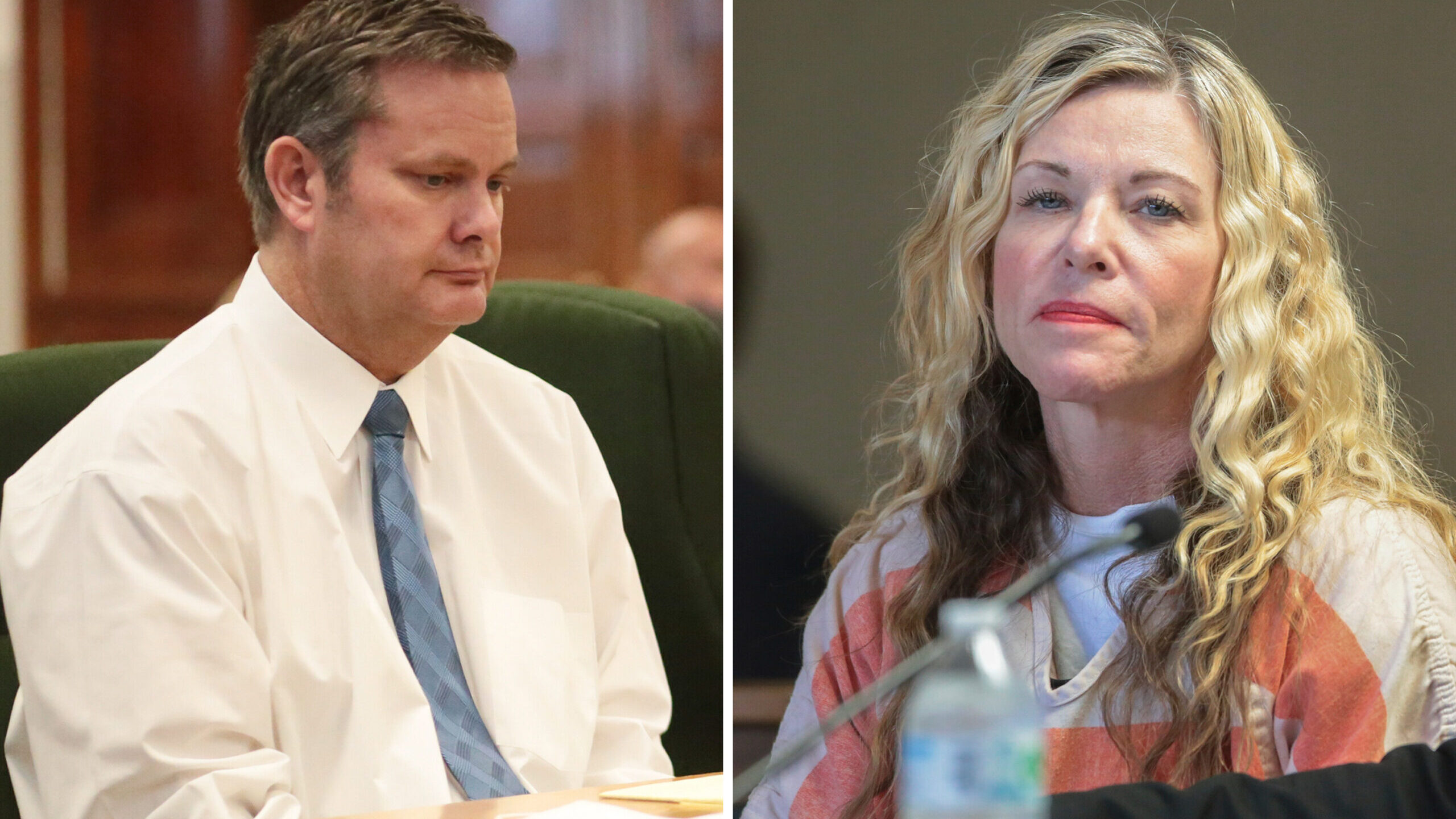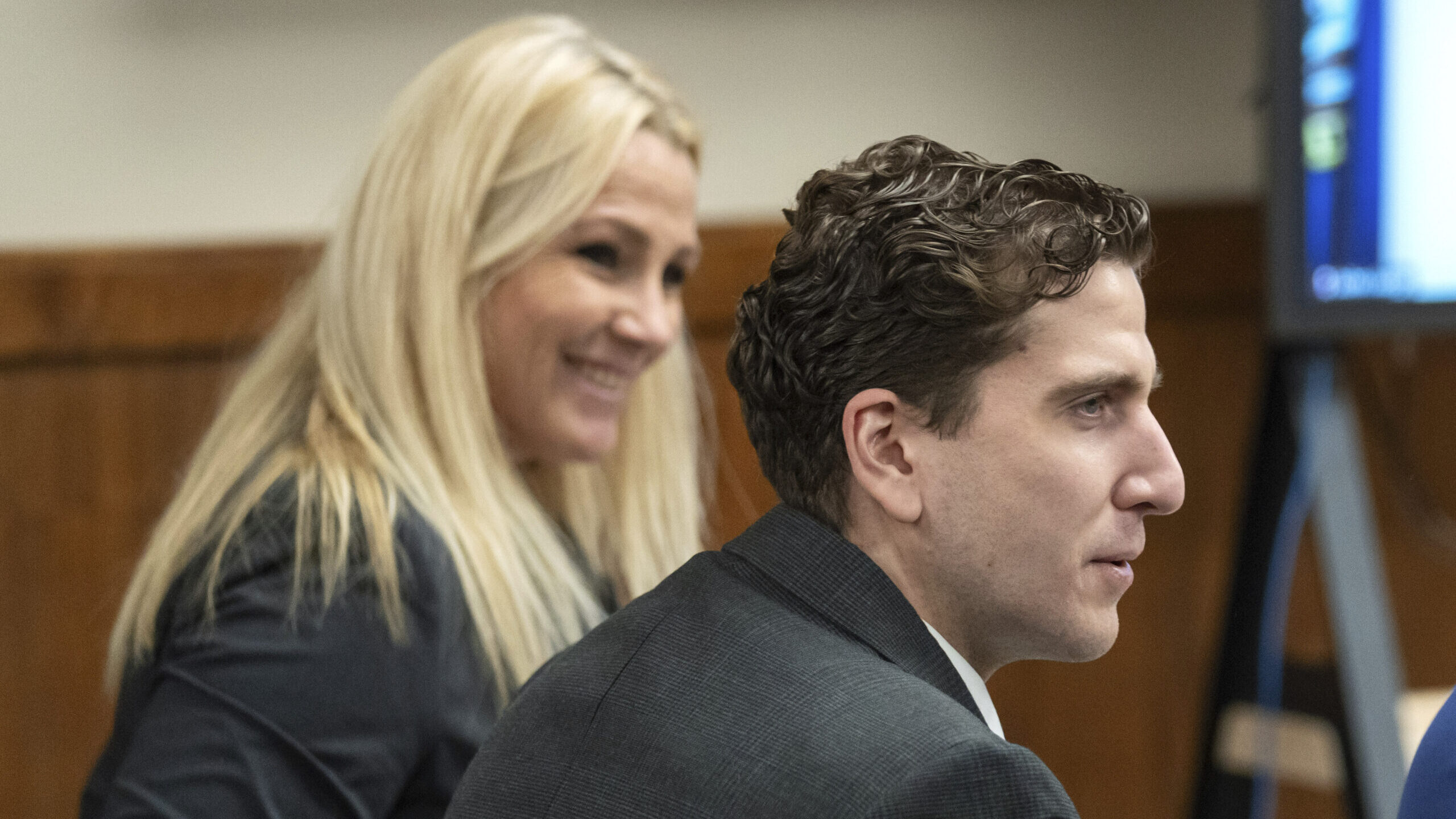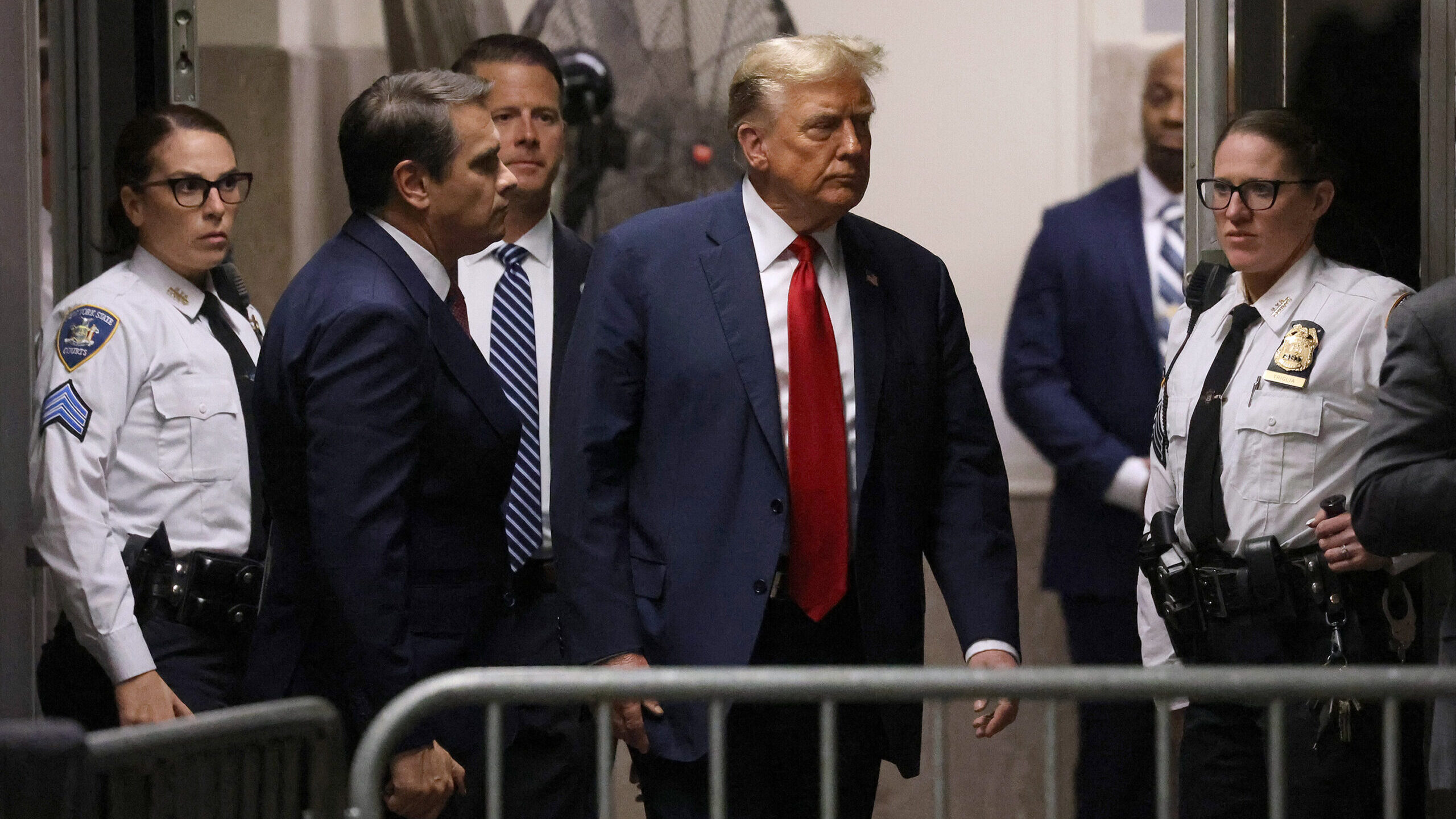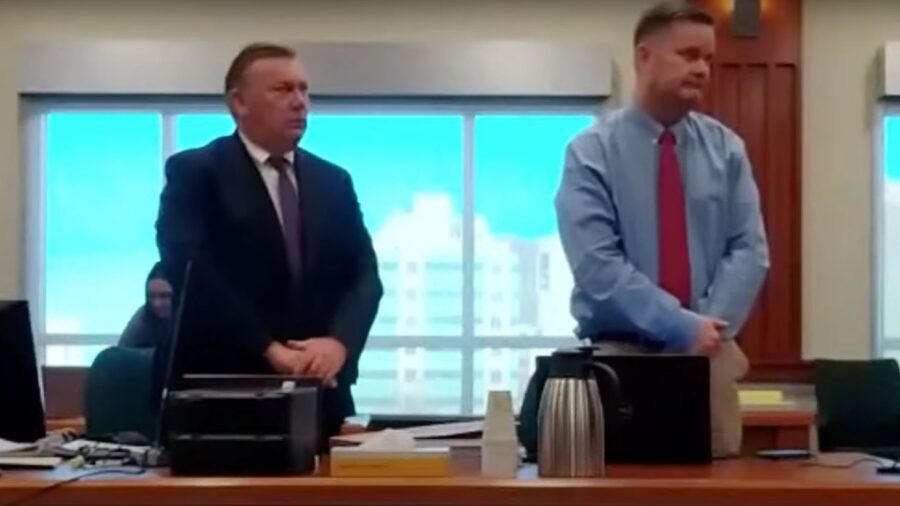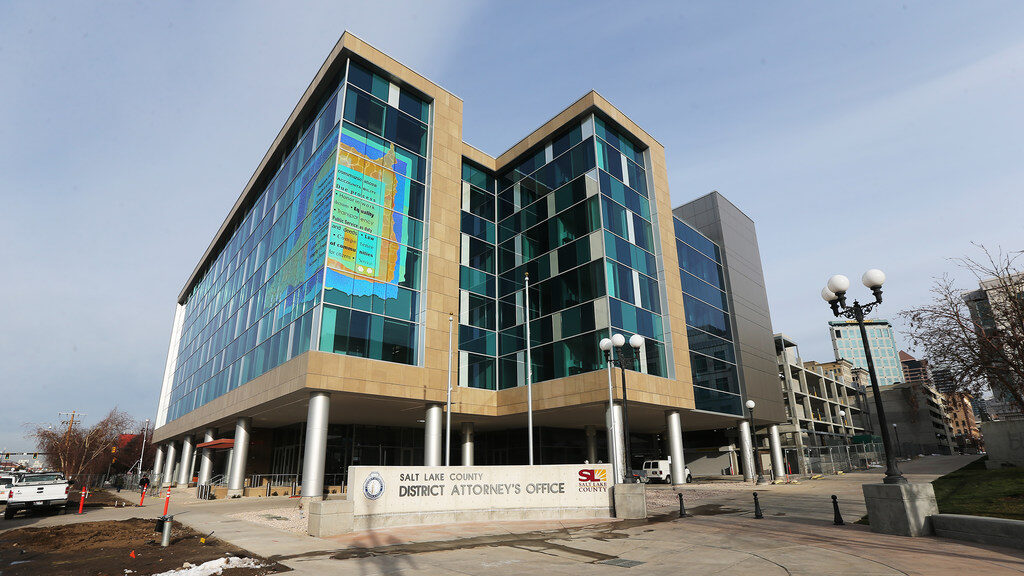Expert: Talk to your kids after a traumatic event like a school shooting
Dec 1, 2021, 3:56 PM
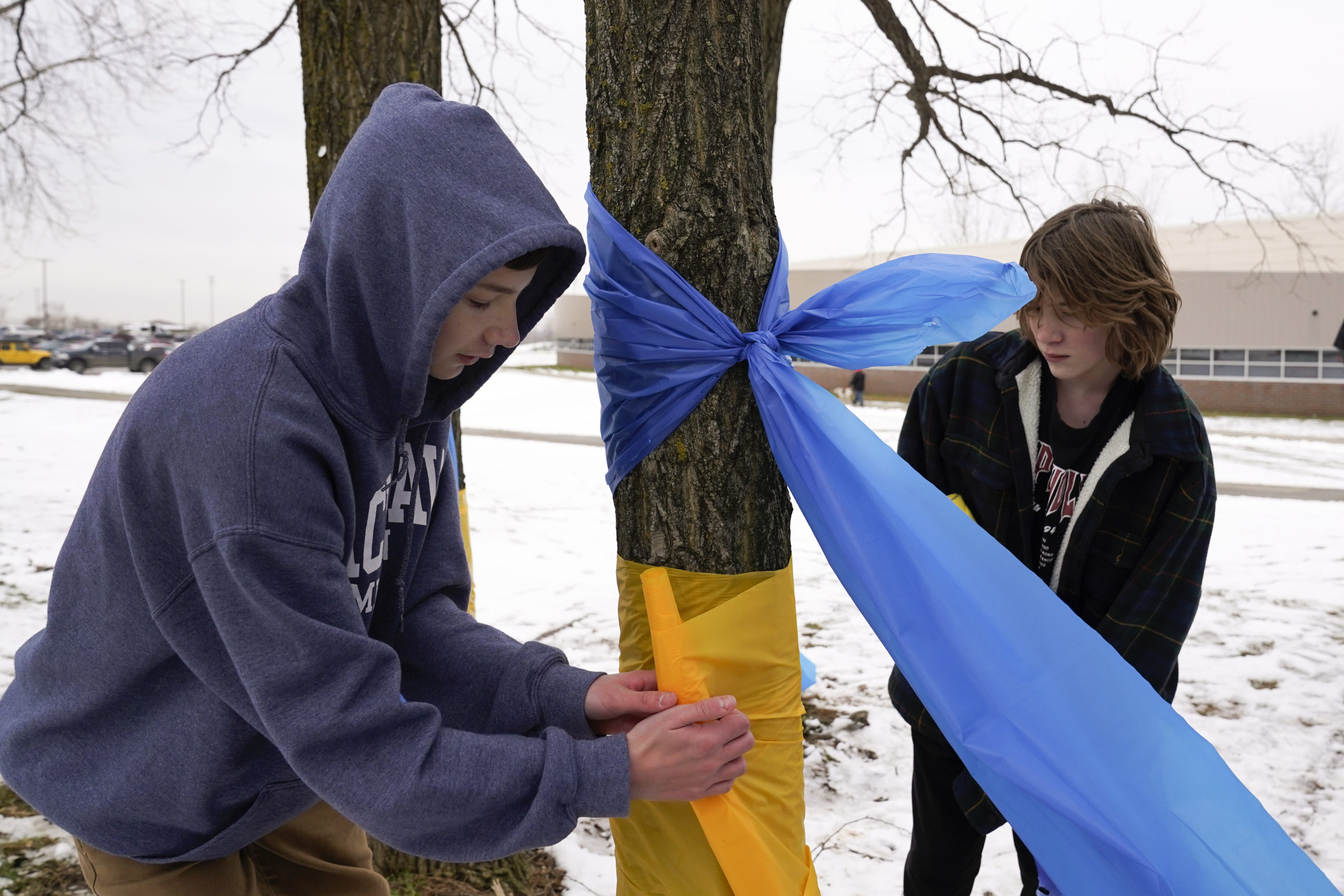
Freshmen Rory Metzger, left, and Zachary Majewski place bows on trees outside Oxford High School in Oxford, Mich., Wednesday, Dec. 1, 2021. Authorities say a 15-year-old sophomore opened fire at Oxford High School, killing four students and wounding seven other people on Tuesday. (AP Photo/Paul Sancya)
(AP Photo/Paul Sancya)
SALT LAKE CITY — For a child experiencing a traumatic event, the best thing a parent can do is talk to their kid, said a psychiatrist.
Another school shooting, this time at Oxford High School in Michigan, left four teens dead and eight other people wounded. A 15-year-old boy is being charged as an adult in the shooting, Oakland County Prosecutor Karen McDonald announced at a news conference as reported by CNN.
An Oakland County sheriff’s deputy came to a barricaded door on Tuesday with students hiding inside.
“Sheriff’s office, it’s safe to come out.”
“Come to the door and look at my badge, bro,” said the deputy.
“He said ‘bro.’ Red flag!” a student said.
The TikTok video below shows the confusion inside the classroom as students escape out a window.
@shwifty766 All prayers out for Oxford high school and to all my classmates #prayers #prayersneeded #oxfordhighschool #fyp #fypシ #capcut
Trauma expert weighs in on how to respond after a school shooting
Dr. Hans Watson, psychiatrist, trauma expert and founder of University Elite, often comes in after school shootings to help teachers and counselors work with students. That includes the 2018 shooting that left 17 dead at Marjory Stoneman Douglas High School in Parkland, Florida.
Watson joined KSL NewsRadio’s Dave & Dujanovic Wednesday to share his knowledge about school shootings.
Students perceived threat on other side of door
Watson said the students and the deputy did nothing wrong in that tense situation; they just had too little information to work with. He said the teens reacted to what they perceived as a threat on the other side of the door and so they fled.
“When I was working with the students who had been in the Marjory Stoneman shooting down in Florida, one of the students there actually told me, ‘I trusted the police officer because they started speaking in a way that I felt like they were one of us,'” Watson said.
But in the Michigan shooting, the opposite was true. The students escaped what they perceived as a possible threat.
“‘I don’t know what’s going on, but ‘bro’ doesn’t feel right,'” Watson said. “‘I’m going to take some action to get away,’ which is smart.”
Talk about a traumatic event with your kids
What can parents do to help their kids cope with any fear? Co-host Debbie Dujanovic asked.
“The number one thing a parent can do to help their children is talk about it,” Watson said.
When parents are silent about a traumatic experience, it unconsciously sends a message to their children that “This is so dangerous, we are not allowed to even speak about it.”
“Unwittingly, we’re actually making things worse by not talking about it,” Watson said.
When the trauma is discussed between parents and children it sends a message that this situation is manageable because my mom and dad are talking about it.
As a parent, co-host Dave Noriega said if he can’t talk about upsetting events like school shootings with his children, he cannot know what their thoughts and feeling are about it, and move forward.
Dave & Dujanovic can be heard on weekdays from 9 a.m. to noon. on KSL NewsRadio. Users can find the show on the KSL NewsRadio website and app, as well as Apple Podcasts and Google Play.


